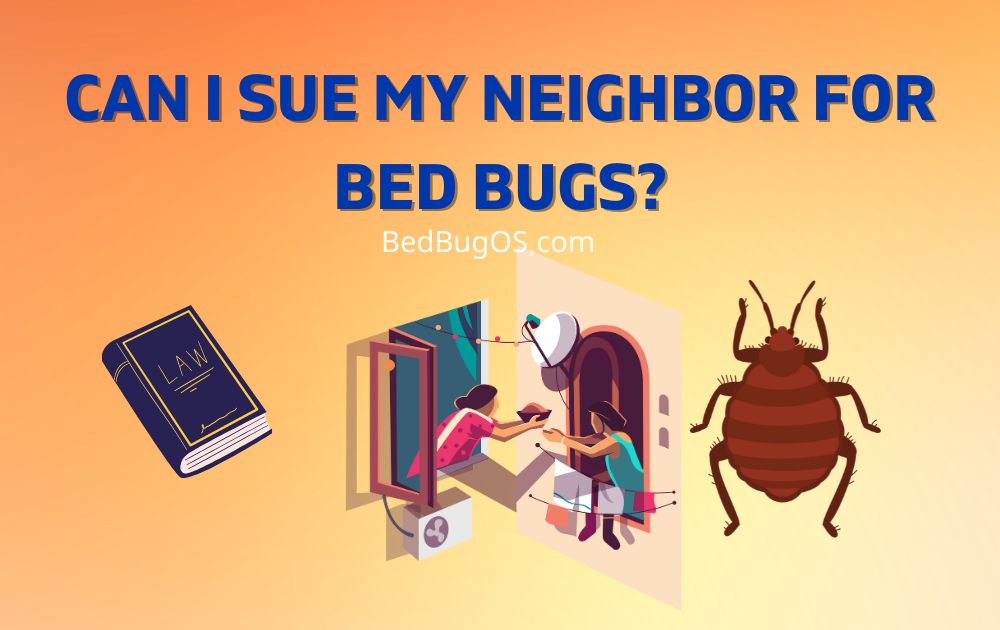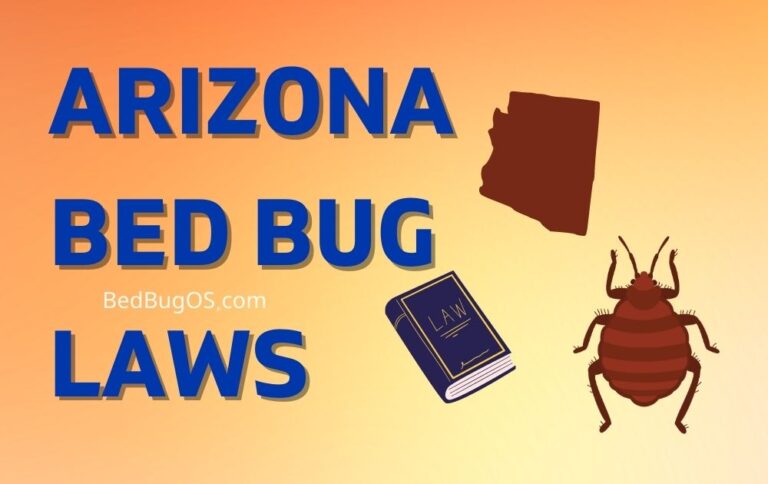Can I Sue My Neighbor for Bed Bugs? What’s Your Legal Right?

Bed bugs, those pesky little insects that feed on human blood and cause sleepless nights, have become an unwelcome presence in many homes. These tiny creatures not only disrupt our lives but can also lead to health issues and property damage.
But what if the source of your bed bug nightmare is your neighbor’s apartment? Can I sue my neighbor for bed bugs ever had in mind? Let’s talk about the possibilities!
In this article, we’ll delve into the world of bed bug infestations, legal responsibilities, and the factors to consider before taking any legal action.
Understanding Bed Bugs and Their Consequences
Before we dive into the legal nitty-gritty, let’s understand what bed bugs are and why they are such a concern.
Bed bugs are small, reddish-brown insects that feed on the blood of humans and animals. They are nocturnal creatures, coming out at night to feed on sleeping hosts.
Bed bug infestations can lead to itchy, painful bites, skin rashes, and even allergic reactions in some cases. Additionally, the mental toll of knowing that your living space is shared with these unwelcome visitors can cause emotional distress.
Establishing Liability in Bed Bug Infestations
Now, the big question: can you hold your neighbor responsible for a bed bug infestation? The answer depends on various factors. Let’s explore
While it’s not easy to prove your neighbor’s negligence caused the infestation, there are certain scenarios where you get bed bugs in the first place. Negligence in this context refers to your neighbor’s failure to take reasonable steps to prevent or address the infestation.
Consider the cleanliness of your neighbor’s premises. If their living conditions are unsanitary and conducive to bed bug infestations, you might have a stronger case.
Similarly, if your neighbor was aware of the infestation but didn’t take any steps to treat it, their negligence could be a factor.
Legal Considerations and Precedents
The legal landscape surrounding bed bug infestations can be complex, and laws vary from state to state. Generally, legal principles related to nuisance and negligence come into play.
If you are from Arizona here are the Arizona Bed Bug Laws you can read and explore the possibilities.
A bed bug infestation could be considered a nuisance if it significantly interferes with your ability to enjoy your living space. Negligence, on the other hand, involves proving that your neighbor’s actions—or lack thereof—directly caused the infestation.
There have been cases where tenants successfully sued their landlords for failing to address bed bug infestations promptly. These cases often hinge on the landlord’s responsibility to provide habitable living conditions.
However, suing a neighbor presents different challenges, as the legal relationship is not the same as that between a tenant and landlord.
Steps to Take Before Considering Legal Action Against Neighbor
Before you rush to court, it’s important to take certain steps to build a strong case. First and foremost, communicate with your neighbor about the issue. Open dialogue can often lead to a resolution without the need for legal action.
If that doesn’t work, document the infestation thoroughly. Take clear photographs of the affected areas, document your conversations with your neighbor, and keep records of any pest control reports.
Mediation or alternative dispute resolution methods can also be helpful. Getting a neutral third party involved can provide a platform for discussing the issue and finding a solution.
The Process of Filing a Lawsuit
If all else fails and you decide to pursue legal action, consulting with a legal professional is crucial. They can help you assess the viability of your case and guide you through the legal process.
Building a strong case involves gathering evidence that demonstrates your neighbor’s negligence as the cause of the infestation. This might include proof of their unsanitary living conditions or evidence of their awareness of the infestation.
Calculating damages is another important aspect. You can seek compensation for property damage, medical expenses related to bites or allergic reactions, and even emotional distress caused by the infestation in your bed bug lawsuit.
Possible Outcomes of Legal Action
It’s important to manage your expectations when it comes to the outcomes of a legal case. Even if you’re successful, the court’s ruling might not guarantee a swift resolution.
The court could order your neighbor to pay you compensation for damages, issue an injunction requiring them to address the infestation, or even result in their eviction in extreme cases.
However, it’s worth noting that legal proceedings can be lengthy and costly. Moreover, proving liability and damages can be a challenging task. Therefore, considering alternative solutions might be in your best interest.
Alternatives To Bed Bug Lawsuits
Instead of diving straight into a lawsuit, exploring alternative avenues can be more productive. Engaging local health and housing authorities can prompt inspections and enforcement actions. Seeking assistance from tenants’ associations or community organizations can also add weight to your case.
Small claims court is an option for less severe cases, where you can represent yourself without the need for extensive legal proceedings. This can be a quicker and more cost-effective way to seek compensation.
Preventive Measures and Long-Term Solutions
While legal action might provide compensation, prevention is always better than cure. Educating yourself about bed bug prevention and early detection can save you a lot of trouble. Collaborating with your neighbors to maintain cleanliness and hygiene in your building can significantly reduce the risk of infestations.
FAQs
Can I take legal action against my neighbor if my home is infested with bed bugs?
Yes, you may have legal options. It depends on factors like your neighbor’s negligence and the specific laws in your area.
What factors establish my neighbor’s liability for the bed bug problem?
Liability could be based on your neighbor’s awareness of the infestation, their failure to take preventive measures, and their living conditions contributing to the issue.
While cases differ, some legal precedents involving landlord-tenant relationships and property standards might offer insights into potential bed bug cases.
Should I Try to Resolve the Issue with My Neighbor First?
Yes, it’s recommended to communicate first. Open dialogue might lead to a resolution without the need for legal proceedings.
Conclusion
Suing your neighbor for bed bugs is a complex undertaking that requires careful consideration. While legal action might offer a solution, it’s important to weigh the costs, challenges, and potential outcomes. Open communication and responsible neighborly behavior can go a long way in preventing such issues. Remember, the aim is not just to win a legal battle but to regain your peace of mind in a pest-free environment.

![How Much Is A Bed Bug Lawsuit Worth In 2023? [Explained]](https://lyssfits.com/wp-content/uploads/2022/12/How-Much-is-a-bed-bug-lawsuit-worth-In-2023_-Explained-768x484.jpg)


